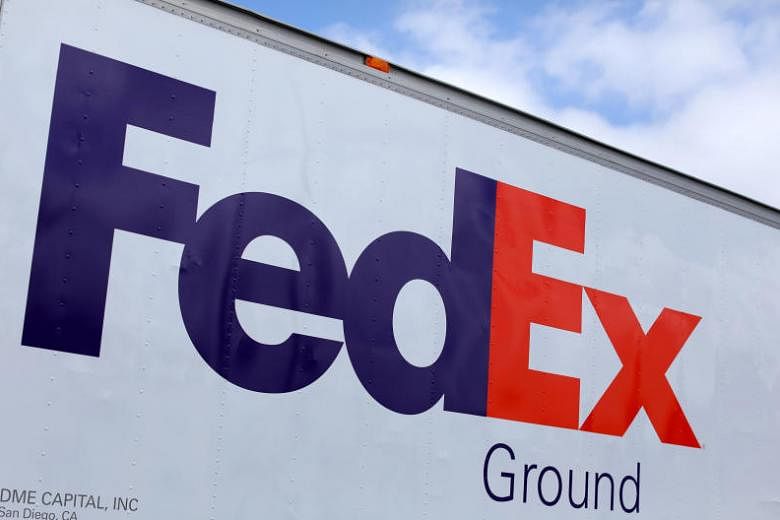BEIJING (WASHINGTON POST) - A top Chinese trade negotiator defended a new Chinese investigation into FedEx, the Memphis-based courier, as "understandable" as he reiterated vague warnings that China would punish those who hurt Chinese companies for political reasons.
FedEx became the latest firm to be entangled in the sharply escalating US-China trade war this week after Huawei accused it of diverting packages to the United States that were intended for Chinese recipients.
FedEx said there was no "external pressure" to misroute the packages amid speculation it was related to new US sanctions against the beleaguered Chinese tech giant. The courier said in a statement the incident was a mistake and agreed to cooperate with the Chinese probe.
The FedEx investigation, disclosed by state media on Saturday (June 1) shortly after the Chinese government unveiled a new blacklist of "unreliable" foreign companies and individuals, raised fears that American companies and executives in China would come under increasing regulatory scrutiny or face punishment as the trade standoff turns acrimonious.
Wang Shouwen, a vice minister of commerce, declined to name names on the new blacklist on Sunday (June 2). He said "everybody doesn't need to worry" about facing retaliatory Chinese action "if they respect Chinese laws". "The entities list targets those who violate market principles and cut off business for noncommercial reasons to hurt Chinese companies and Chinese national security," said Wang.
He told reporters specific punishments for companies on the "unreliable" list would be announced at a later time.
Wang, a member of the Chinese team shuttling between Beijing and Washington until trade talks collapsed last month, declined to say whether President Donald Trump and his counterpart Xi Jinping would meet later this month on the sidelines of the Group of 20 summit in Japan.
Officials on both sides see a face-to-face meeting at the Osaka summit as the best chance to halt or reverse the alarming slide in relations between the two powers.
But the chances of a productive meeting - or of a meeting at all - appear slim after Trump signed an executive order that prohibited US firms from doing business or selling components and software to Huawei, a move that could cripple and humiliate an iconic Chinese company.
In retaliation, China has also threatened to cut off exports of rare earths used in electronics manufacturing to the United States.
It's not clear now what would bring the two sides back to the negotiating table.
The Chinese have dug in to their position that the Americans were wholly responsible for the breakdown in talks in May. US officials say Chinese negotiators stunned them when they backtracked on practically all the significant commitments they had already made in earlier rounds of talks.
The backtracking convinced Trump to proceed with raising tariffs on US$200 billion (S$276 billion) worth of Chinese goods, administration officials said.
Wang, the Chinese negotiator, dismissed the Washington's claims on Sunday as he unveiled a new position paper from his ministry that declared: "The US government should bear the sole and entire responsibility for this severe setback" to the trade talks.
Back-and-forth revisions and adjustments until the last minute are part of any normal negotiating process, Wang said, so allegations of "backsliding" were groundless.
"Nothing is agreed until everything is agreed," he told reporters, switching to English to make his point.

